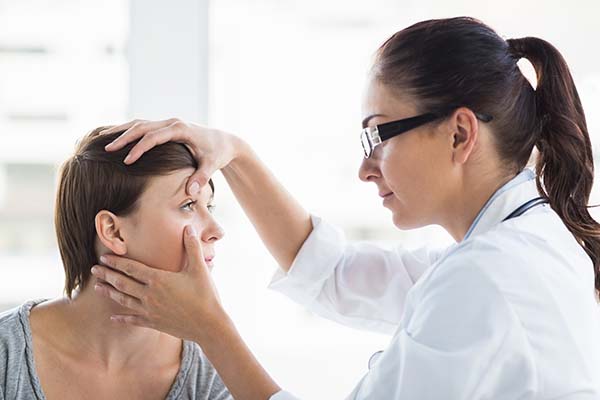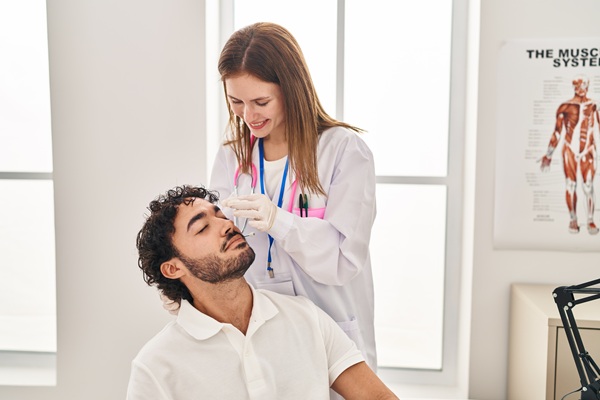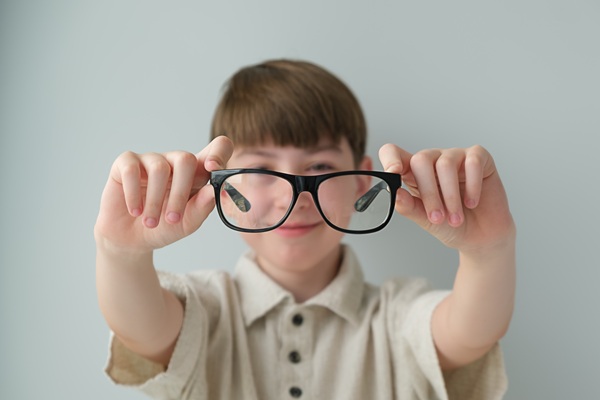What Types of Instances Fall Under Emergency Eye Care?

Curious about what constitutes emergency eye care? Read on to learn more. What constitutes an eye emergency can confuse many people, often causing delays in seeking necessary care. This article discusses the conditions that fall under emergency eye care, allowing individuals to make informed decisions about their eye health.
An overview of emergency eye care
Emergency eye care involves medical attention for conditions that pose an immediate risk to one’s vision or eye health. Unlike routine eye exams that monitor and manage ongoing eye health, emergency eye care addresses acute, potentially sight-threatening conditions. The following are conditions that typically require urgent eye care:
Trauma to the eye or eyelid
Unfortunately, trauma to the eye or eyelid is a common occurrence, often caused by sports accidents, workplace incidents, or blunt force. These injuries frequently result in emergency eye care visits, as the impact can range from minor discomfort to severe conditions that endanger vision.
For example, a simple scratch on the eye's surface, known as a corneal abrasion, can cause serious discomfort and increase infection risks. More serious injuries, such as a fractured eye socket, can lead to long-term complications like double vision or changes in eye shape. Eye trauma can also cause retinal detachments. This situation requires immediate surgical intervention to prevent permanent vision loss.
Sudden loss of vision
A sudden vision loss is alarming and indicates urgent medical attention. This condition could result from several underlying issues. For instance, retinal detachment happens when the retina, the light-sensitive layer behind the eye, separates from the tissue that supports it. Putting off treatment can cause permanent vision loss.
Vascular occlusions, or blockages in the eye's blood vessels, can also lead to sudden vision loss and may be a sign of a more serious heart problem. Another serious reason for sudden vision loss is neurological conditions, such as strokes that damage the pathways carrying vision signals.
Severe eye pain
Severe eye pain, headaches, nausea, and light sensitivity are common symptoms of a serious eye condition. A condition like acute glaucoma can make the eye pressure rise quickly, which can cause a lot of pain and loss of vision. To lower the pressure and stop permanent damage, patients need to see a doctor right away. Also, advanced infections, major injuries, or corneal ulcers can cause severe eye pain.
Chemical exposure
Accidental exposure to chemicals at home with cleaning products or at work could result om eye burns. Depending on the substance and exposure duration, these injuries can be mild, moderate, or severe. Flushing the eyes immediately and getting medical help right away can help limit the damage. Alkali burns are particularly dangerous because they tend to penetrate the eye tissues, which can cause more severe injuries compared to acidic burns.
Foreign objects in the eye
Small particles like dust or sand in the eye typically cause minor irritation and are often easily flushed out. Larger or sharper objects are even more dangerous. If an object enters the eye, it can lead to infections, internal damage, or even affect the structural integrity of the eye. If irritation or discomfort persists after removing small particles, it is advisable to seek medical attention to rule out any eye injury.
Infections and inflammation
Symptoms such as severe redness, swelling, discharge, or the sensation of something in the eye often indicate infections like conjunctivitis (pink eye) or more severe conditions like keratitis, a cornea inflammation. Bacteria, viruses, or other pathogens can cause these conditions. Delaying treatment can lead to complications, including corneal scarring or vision impairment.
Flashes of light or floaters
A sudden increase in floaters (specks or threads drifting around the field of vision) or light flashes can mean retinal issues, such as a tear or detachment. These symptoms may also come with a shadow or curtain effect over one’s vision. Serious retinal problems require immediate medical attention to prevent long-term damage or vision loss.
Final note
While not all eye emergencies are preventable, awareness and caution can reduce risks. Wearing protective eyewear during sports or hazardous work activities, being cautious with chemicals, and maintaining good eye hygiene can reduce the likelihood of some emergencies.
Also, knowing when to seek emergency eye care is crucial. Whether it is a traumatic injury, sudden changes in vision, or severe pain or discomfort, seeking immediate medical attention can preserve your vision and overall quality of life. You should avoid trying home remedies before speaking to an eye doctor. Remember, when it comes to eye health, it is always better to be cautious and seek professional advice promptly.
Get more information here: https://www.texasoptical.net or call Texas Optical at (214) 771-7333
Check out what others are saying about our services on Yelp: Emergency Eye Care in Dallas, TX.
Recent Posts
Dry eye treatment is important when occasional irritation becomes ongoing discomfort that interferes with daily activities. Many individuals experience dryness, burning, or a gritty feeling in the eyes from time to time. However, when symptoms start to affect reading, screen use, or time outdoors, a structured approach to diagnosis and care helps protect comfort and…
Myopia control focuses on slowing the progression of nearsightedness, primarily in children and teens, to help protect long-term eye health and day-to-day vision. Myopia occurs when the eye grows too long or the cornea curves too steeply, which causes distant objects to appear blurry. As the prescription increases, the risk of future eye disease also…
Retinal photography gives optometrists a detailed view of the back of the eye. When done regularly, they are often able to spot early signs of disease before symptoms affect daily vision. This advanced imaging tool helps create a clear record of eye health over time and supports smarter decisions about treatment and follow-up care. Learning…
Red, itchy eyes can affect your everyday comfort and reduce overall well-being. It is important to seek effective vision care from the first sign of irritation. Proper attention to symptoms, underlying causes, and healthy habits ensures stronger long-term eye health and greater day-to-day clarity. Redness and itchiness often stem from several common triggers. These include: Allergic…


